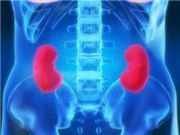Article
NephroCheck: A Big Step Forward in the Management of Acute Kidney Injury
Author(s):
The recent approval of the NephroCheck biomarker assay is a big step forward in the management of acute kidney injury.

Acute kidney injury (AKI) is a common clinical entity in critical care and perioperative settings. Most of the current diagnostic modalities are based on serum creatinine. However, this is an imperfect tool for diagnosis of AKI in elderly patients who typically have poor muscle mass. Often, the diagnosis is too late and irreparable damage is already done.
The FDA has recently approved NephroCheck as a diagnostic tool for early diagnosis of AKI. It is based on a bioassay of two biomarkers: tissue inhibitor of metalloproteinases (TIMP)-2 and insulin-like growth factor binding protein 7 (IGFBP7). Both are related to G1 cell cycle arrest during mitosis in cell replication. Bihorac et al in a recent trial validated both of these biomarkers as a diagnostic tool for AKI. In a prospective multicenter study, 420 patients were studied with the objective to analyze these two biomarkers for diagnosis of AKI within 12 hours. The cut-off value was set at 0.3 for AKI. Immunoassay was used to measure urinary TIMP-2 and IGFBP7. Both of the biomarkers were strong predictors of AKI.
This is a big step forward in the management of AKI, which is associated with high morbidity and mortality. More data is likely to available in coming years as the tests get incorporated into clinical practice.





